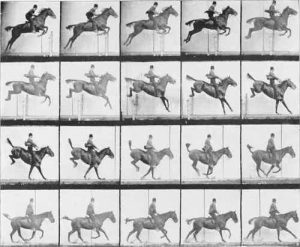According to Benjamin, how does mechanical reproduction change culture? What do you think are the consequences of digital reproduction on cultural expression today? Can a digital work have anything like an “aura? How does the culture of remix (see above video) confirm of refute Benjamin’s ideas?
From his Work of Art in the Age of Mechanical Reproduction, Benjamin states a few things on the effect and change on culture. Mechanical reproduction allows for something totally new rather than just a reproduction. What I understand is that it also changes the presence of time and place that the image or piece came from. The process of mechanical reproduction while impressive, allows for a new change towards how we view time and space. More connected to culture, Benjamin asserts that mechanical reproduction effects culture by means of new ways in conditions of the production.
(Jennifer Lee Halsey.Com)
I think the consequences of digital reproduction today is the loss of tradition and time that is associated with a piece. The presence is taken for granted in today’s culture, where everything is so quick and you have limited time to soak up the importance of something before our screen take it away and provide us with something new to observe.
In my opinion digital work can have an aura, although like Benjamin said time and space becomes skewed in the reproduction process, the aura will always remain. I like to think that if one can look deeper into a piece they can find that aura with research. But maybe the aura should be very obvious? I agree that reproduction loses some of that tradition as Benjamin also mentions. Tradition is a key idea here, in that it can be interpreted through time just like these types of reproductions. You cannot expect a piece to remain the same in purpose when it is reproduced across time.
The culture of remix kind of accepts this idea that Benjamin discusses. Because remix combines many different traditions and ideas, while in Benjamin’s argument he recognizes the role of tradition that is changed through mechanical reproduction. The culture of remix I think can also forget tradition and the time and place of a work, which Benjamin would be discussing how important that is and that it is lost in mechanical reproduction.
